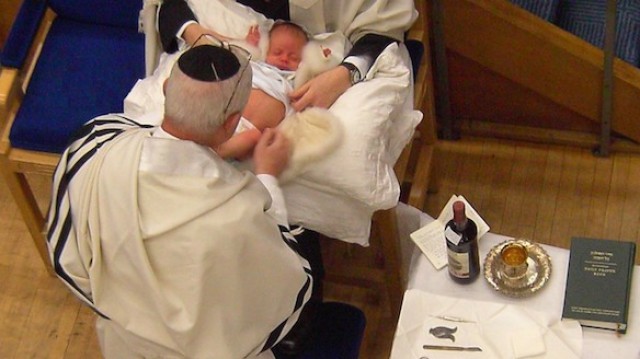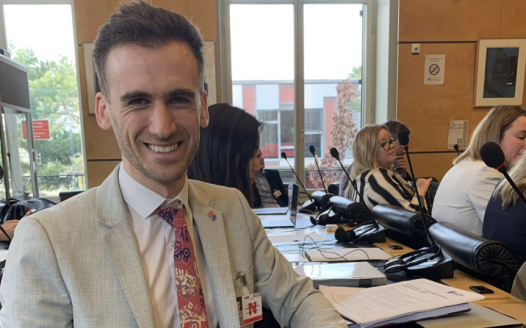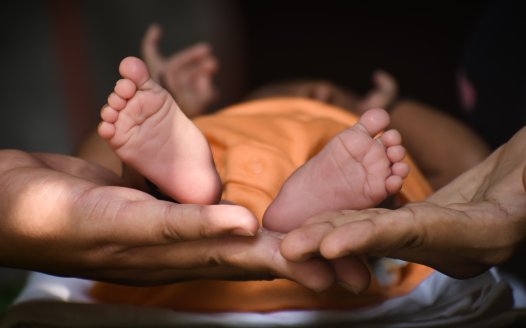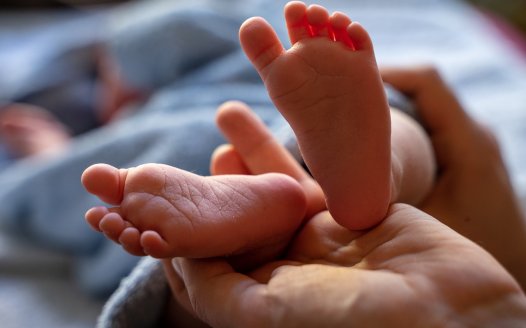NSS says UK should follow Iceland’s lead to end genital cutting
Posted: Mon, 19th Feb 2018
The National Secular Society has called on the UK Government to "follow the lead" of Icelandic lawmakers who are expected to ban cutting boys' genitals for non-medical reasons.
A draft bill currently before the Icelandic parliament says circumcision without consent is a violation of children's human rights. "While it is certainly the right of parents to give their children guidance when it comes to religion, such a right can never exceed the rights of the child," it says.
It adds that boys who wish to be circumcised should be given the choice when they "understand what is involved in such an action". If it is passed anyone guilty of "removing part or all" of a child's sexual organs could face a six-year prison term.
Silja Dögg Gunnarsdóttir, of the centre-right Progressive party, proposed the bill. "If we have laws banning circumcision for girls, then we should do so for boys," she said. "We are talking about children's rights, not about freedom of belief. Everyone has the right to believe in what they want, but the rights of children come above the right to belief."
She also said if lawmakers back the bill, "I think other countries will follow".
A poll by YouGov revealed that the majority of people in the UK would support a law prohibiting the circumcision of children for non-medical reasons. Sixty-two per cent said they would support such a law, while only 13% would oppose it.
The NSS welcomed the bill in Iceland and said the religiously and culturally-motivated cutting of boys' genitals "raises serious child safeguarding concerns".
Chief executive Stephen Evans commented: "Religious freedom should not extend to removing functioning body parts from healthy baby boys. Every child should enjoy the right to bodily integrity and other people's dogma simply isn't a justifiable reason for this right to be violated.
"All countries should follow Iceland's lead in protecting children from unnecessary medical surgery. Ms Gunnarsdóttir is right: parents should be allowed to guide children with regard to religion but not to use it as a reason to make irreversible and unnecessary changes to the most sensitive parts of their bodies."
The NSS's Secular Medical Forum (SMF) has long campaigned to raise awareness of the harms of non-therapeutic infant circumcision and for it to be recognised as a breach of children's rights. The British Medical Association is currently reconsidering its position on non-therapeutic male circumcision as a direct result of these efforts.
In December Amazon withdrew 'training kits' for male genital cutting from sale after the SMF's chair, Dr Antony Lempert, asked it to do so.
The bill in Iceland is believed to have cross-party support. If it passes its first reading it will go into committee stage for several months before it can become law.
Some Jewish and Muslim 'leaders' have furiously condemned it. A spokesperson for Milah UK, which campaigns to retain Jews' 'right' to circumcise infant boys, told The Observer the practice was "a non-negotiable element of Jewish identity". Mr Evans said this comment displayed "an extraordinary sense of entitlement".
Some Christian leaders have also voiced their opposition. The bishop of Reykjavik said the law could make Jews and Muslims "unwelcome" in Iceland.
In response Mr Evans said: "Lawmakers must not be swayed by alarmist rhetoric and intimidation. Decisions should be made on the basis of medical evidence and what is best for children."
The international medical consensus is increasingly turning against the cutting of boys' genitals. In September a Belgian federal government committee ruled against the circumcision of infant boys for reasons other than medical necessity.
In 2010 the Royal Dutch Medical Society (KNMG) urged doctors to adopt "a strong policy of deterrence" on infant male circumcision, which it called "a violation of children's rights to autonomy and physical integrity". KNMG said any medical advantages of circumcision were significantly outnumbered by the risks and other disadvantages, such as the loss of up to 30% of erogenous tissue.
In 2013 an international group of physicians criticised the American Academy of Paediatrics for promoting infant male circumcision. The Council of Europe adopted a non-binding resolution advising member states not to allow the ritual circumcision of children unconditionally, at least for very young children. In a joint statement, the Nordic children's ombudsmen condemned non-therapeutic infant circumcision as violating fundamental medical-ethical principles.
And in 2016 the Danish Medical Association said circumcision should only be performed with "informed consent".
Children's right to physical integrity and protection from physical injury is protected by the International Treaty on the Rights of the Child.
While you're here
Our news and opinion content is an important part of our campaigns work. Many articles involve a lot of research by our campaigns team. If you value this output, please consider supporting us today.








